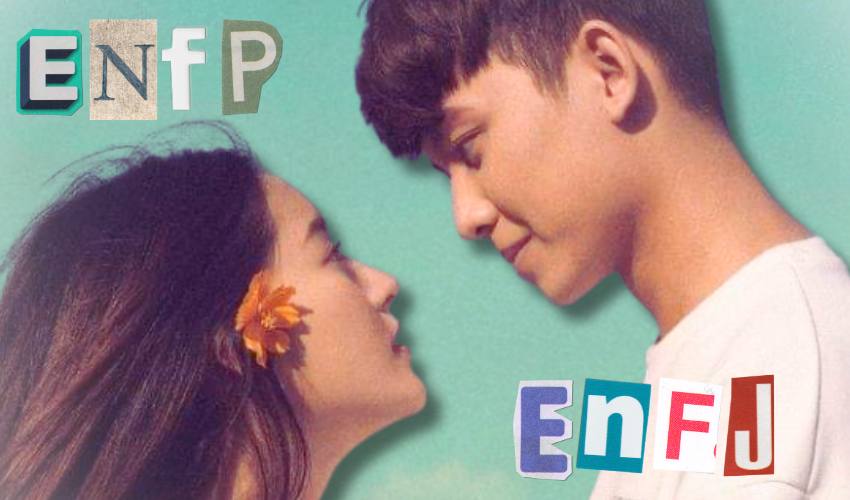The shadow type of INFP is ENFJ. Each MBTI type consists of 4 cognitive functions but in truth, every person utilizes all eight. The 5th, 6th, 7th and 8th functions are considered shadow functions. Jungian analyst John Beebe conceptualized the functions in terms of archetypal roles. The 1st being the “hero”, the 2nd; the”good parent”, the 3rd he called the “child” and the 4th he referred to as the”anima” which means “soul” or “spirit”. The namesakes of these roles gives you some sense of what they represent.
INFP – 8 Cognitive Functions
| Fi | Ne | Si | Te | Fe | Ni | Se | Ti |
The shadow half of INFP comprises Fe, Ni, Se, and Ti. These shadow functions form a kind of negative version of the ENFJ. Carl Jung’s conception of the shadow was mostly attributed to the inferior function which he believed was host to much of the negative emotion, and unwanted aspects of ourselves that we try to repress. The inferior function also represents an area in which we struggle but aspire to improve. Nevertheless, it is a source of embarrassment and difficulty and ultimately a gateway to what Jung regarded as the shadow. Here is a look at the INFP shadow functions and how they play out.
INFP 5th Function: Fe Opposing
INFPs are very protective of their personal values and sense of integrity. They normally don’t seek to impose their values on other people but that can change when they feel they are being imposed upon or heavily judged for being who they are. When INFP feels their personal values and sense of individuality is being obstructed by obligations and responsibilities to others, they may fight against it using specially selected societal values that support their view and perspective. INFPs may try to draw support from others who agree with them in opposition to group standards or values they consider to be unjust or misguided.
INFPs can feel attacked by Fe users who don’t understand them and label them as being selfish, unconscientious and weird. If INFP is made to feel somewhat guilty or unappreciated for being too self-absorbed and shy, they may overcompensate by showing extra concern for others and over-accommodate them in a somewhat overzealous and desperate manner. They may suddenly behave as though they are responsible for other people’s happiness and wellbeing. Otherwise, INFP may become self-righteous, defiant and rebellious under the pretense that their values are in the best interests of the group.
INFP 6th Function: Ni Critical Parent
Normally, INFP enjoys entertaining a variety of options and possibilities. They like to explore creatively and are more concerned with the process than with the outcome. INFP’s shadow Ni however, tends to manifest as an excessive worry about negative outcomes. Irrational fear and neuroticism may lead them to assume the worst about people and situations. Their interpretation of events and people’s intentions will lean toward the negative.
They may overestimate the accuracy of their perceptions and be overly suspicious and prejudiced based on vibes and intuitions. Furthermore, INFP may regard themselves as being more creatively brilliant than those around them and criticize others for having a lack of vision and original thinking. Ni Critical Parent may contribute to heightened stress from paranoia and unhealthy perfectionism. INFP may feel dissatisfied with their work and obsess over achieving some lofty ideal against which they compare both themselves and others to.
INFP 7th Function: Se Trickster
As an Fi-dom type, INFPs sometimes fall back on their introverted sensing and withdraw into an introverted loop. Sticking to what they already know and what’s familiar to them, INFPs can occasionally settle into a conventional routine or habit, or cling to something nostalgic and sentimental to them rather than seek after novelty. This can also make them slow to adapt to new external changes or resistant to them altogether.
INFP’s Se trickster is something that is triggered in response to someone trying to get on their back, intimidate, control or punish them due to some reluctance on INFP’s part to change their ways or views. When their Si perspective of established facts is challenged, INFP may use Se trickster to disarm others who try to threaten or challenge them. They do this by pointing out whatever hypocrisies and absurdities they observe about the reality of the situation and use it against their adversaries. Additionally, INFP insists on having their own way, experiencing things for themselves and requiring tangible evidence before accepting anything they are led to believe.
INFP 8th Function: Ti Demon
The Demon function manifests as a sort of projection used against those who trigger feelings of insecurity and inferiority in ourselves. Ti demon is brought about as a reaction to what INFP perceives as someone else’s use of cold and evil logic against them. INFP will then try to project the depersonalized way this makes them feel back onto the other person in an attempt to destroy their logic. Ti Demon is like a voice in their head that tells them they are stupid especially for their internal feelings. INFP may try to bolster their self esteem through intellectual narcissism and preoccupy themselves with trying to expose the logical inconsistencies of others.
related posts:
- The INFP Personality; What It Means to be the Mediator MBTI Type
- The Dark Side of the INFJ Personality
- INTP Shadow
- 7 Major Weaknesses of the INFP Personality
- 6 Best Paying Careers for the INFP Personality
- 6 Reasons Why INFP and INFJ Fall In Love
- 12 Variations of INFP: Zodiac and the MBTI
- 33 Strong Signs You’re a True INFP
- The Shadow Ego of Each Myers Briggs Type
- The Opposing Role of Each Myers Briggs Type
- The Critical Parent Role of Each Myers Briggs Type
- The Trickster Role Of Each Myers Briggs Type
- The Devilish Role of Each Myers Briggs Type
- ISFJ and ISTJ in love: 5 Essential Dynamics of their Relationship - February 24, 2024
- ENTP and ENTJ in love: 6 Critical Dynamics of Their Relationship. - February 18, 2024
- ESTJ and ESFJ in love: 4 Key Aspects of their Relationship. - February 12, 2024





